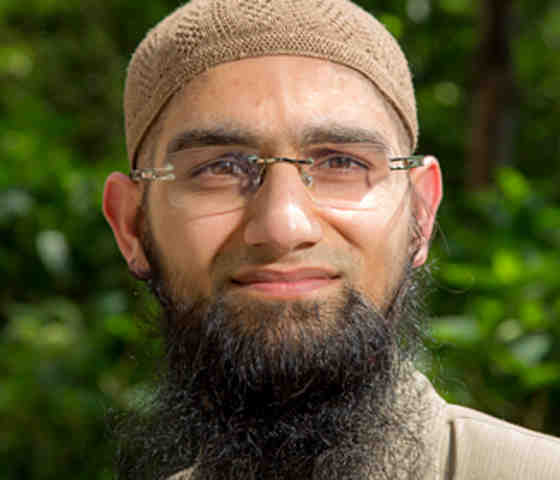NYCLU on Violent Crackdown of Pro-Palestine Protests at Columbia and City College
Civil Liberties Union

In a revised settlement announced today, the New York City Police Department has agreed to strengthen reforms in a landmark settlement agreement that will protect New York Muslims and others from discriminatory and unjustified surveillance.
The revised agreement expands the independence, authority, and responsibilities of a civilian representative who will act as a check against surveillance abuses by the NYPD. The settlement was reached in two federal lawsuits, Raza v. City of New York and Handschu v. Special Services Division.
The agreement comes after an October ruling from the judge in the Handschu case that recommended enhancements to the previous settlement announced in January 2016.
The new agreement requires the mayor to obtain federal court approval before abolishing the position of civilian representative, expands the scope of the representative’s authority to ensure the NYPD’s compliance with the “Handschu Guidelines” on surveillance of political and religious activity, and empowers the representative to report to the court at any time concerning violations of the guidelines.
In the October ruling, Judge Charles S. Haight Jr. had found that the “other provisions in the proposed settlement are salutary” and “would strongly militate in favor of approval.”
Raza was brought in June 2013 by the American Civil Liberties Union, the Creating Law Enforcement Accountability & Responsibility (CLEAR) project of Main Street Legal Services at CUNY School of Law, the New York Civil Liberties Union, and the law firm Morrison & Foerster LLP. The case was filed on behalf of religious and community leaders, mosques, and a charitable organization alleging they were swept up in the NYPD’s dragnet surveillance of Muslims. The suit charged that the NYPD violated the U.S. and New York State Constitutions by singling out and stigmatizing entire communities of New Yorkers based on their religion. The case sought systemic reforms to prevent law enforcement abuses.
Separately in 2013, lawyers in the Handschu case, including the NYCLU, filed papers arguing that the NYPD’s investigations of Muslims violated a long-standing consent decree in that case, which was a class action to protect New Yorkers’ lawful political and religious activities from unwarranted NYPD surveillance.
The settlement must be approved by the judges in both cases.
Below are comments on the agreement:
Arthur Eisenberg, NYCLU legal director:
“We appreciate Judge Haight’s suggestions for enhancing the settlement. We believe the terms we have now arrived at make it even more protective of religious and political freedoms.”
Hina Shamsi, ACLU National Security Project director:
“As religious bigotry rises to a fever pitch nationwide, this settlement sends the message that Muslims and all New Yorkers will have even stronger protections from unconstitutional religious profiling and surveillance. Federal officials and local police elsewhere should take heed that courageous people like our clients and their supporters will always stand up for constitutional rights and freedoms.”
Imam Hamid Hassan Raza, lead plaintiff in the Raza suit:
“This settlement represents important progress, not only for Muslim New Yorkers but for other minorities in New York and beyond. The new additions to the agreement cement the gains that we achieved before, securing our freedom to practice our religion without being afraid of who’s watching.”
Ramzi Kassem, CLEAR founding director and CUNY professor of law:
“For far too long, Muslims in New York City have borne the harms of their own police department’s surveillance apparatus. They pushed back courageously and these new safeguards are among their hard-fought gains. Contrary to what some have said, the NYPD’s unfettered Muslim surveillance program is no model for others to follow —it has been discredited.”
The previous settlement included the following changes:
Under the new changes:
The plaintiffs in the Raza case in addition to Imam Raza are Asad Dandia, Masjid Al-Ansar mosque, the charity Muslims Giving Back, Masjid At-Taqwa mosque, and Mohammad Elshinawy.
In addition to Shamsi, Kassem, and Eisenberg, lawyers on the Raza case include Ashley Gorski and Patrick Toomey of the ACLU, Naz Ahmad and Tarek Z. Ismail of CLEAR, Beth Haroules of the NYCLU, and Hector Gallegos, Kyle Mooney, and Adam Hunt of Morrison & Foerster LLP.
Lawyers on the Handschu case are Eisenberg, Jethro M. Eisenstein, Martin R. Stolar, Paul G. Chevigny, and Franklin Siegel.